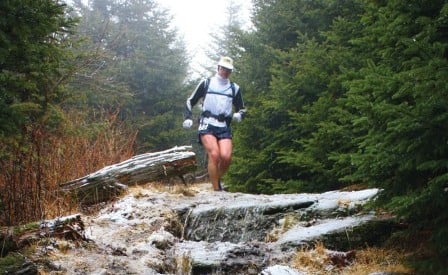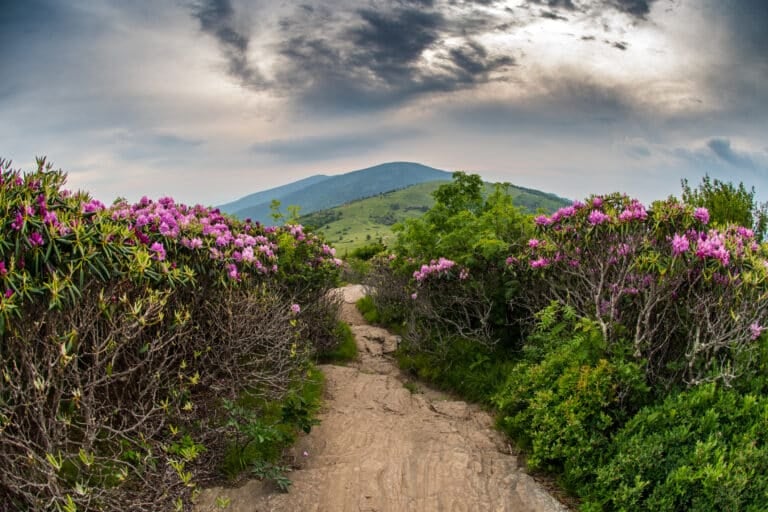“The mental toughness required in mountain running is unparalleled. All running is painful, but mountain running is a deeper kind of pain. You’re grinding it out for such a long period, you’ve got to find a way to move past the pain mentally.”
Benford earned a spot on the 2009 U.S. Mountain Running Team and turned in the fastest American time at the World Championships in Italy that year. But equally memorable for Benford was his very first mountain run, a 30-minute jaunt in West Virginia with a buddy.

“It got really steep in the last five minutes toward the top of the mountain. I started puking. I asked my friend what I should do. He said ‘keep running.’ So I did.”
For runners living in the Appalachians, mountains are a fact of life. Shiloh Mielke grew up running the logging roads behind his childhood home in Western North Carolina, training for mountainrunning before he even knew that mountain running was its own sport.
“The only running I could do growing up was either up a mountain or down a mountain,” Mielke says. “The traditional rules of running don’t apply on the mountain. In road racing, you can run off of efficiency. With mountain running, every step is different, so your muscles need a different kind of strength and endurance.”
Mountain running isn’t always a suffer-fest. For most runners who aren’t concerned with prize purses and sponsorships, they can enjoy the simple beauty of running from the bottom of a mountain to the top. Amber Moran, one of the country’s top mountain runners, loves the sport primarily for the physical and spiritual ascent.
“Running mountains feeds my soul,” Moran says. “Yes, it hurts like crazy when you’re in the thick of it, but when you finish, you’re on top of the world. There’s nothing like it.”
Southern Mountain Runs Luckily, you don’t have to travel to Mount Washington to run a classic mountain race. The Southeast has more than its share of brutal, but scenic, mountain runs, from paved all-uphill climbs to up-and-down singletrack romps.









